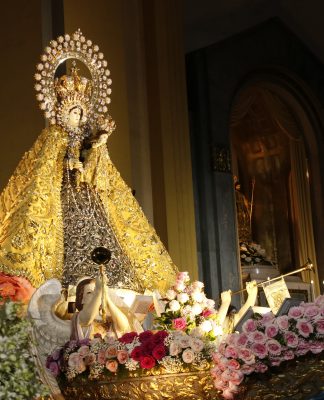
A GROUP of teachers has urged the Commission on Higher Education (CHEd) to revoke Memorandum Order No. 16, which required higher education institutions (HEIs) to conduct at least 50 percent of classes on-site starting the second term of Academic Year 2022-2023.
The Council of Teachers and Staff of Colleges and Universities of the Philippines (CoTeSCUP) said the CHEd memo, released a month before the new term, would create serious challenges for HEIs.
The council added that the CHEd did not consult with teachers and other stakeholders prior to releasing the order.
“We were unaware of any public consultation made by CHEd before the memorandum order was released,” the CoTeSCUP said in a statement on Dec. 8.
“Worse, we were told that such Memorandum Order was released by CHED because of the pressure [from] a lady senator [who] threatened to hostage CHEd’s budget if full face-to-face classes will not resume this semester,” the council added.
Assoc. Prof. Rene Tadle, former vice president of the UST Faculty Union, is the lead convenor of the CoTeSCUP.
During the budget hearing on Sept. 27, Sen. Pia Cayetano threatened UP President Danilo Concepcion that she would not approve their budget unless they held face-to-face (F2F) classes.
“My challenge remains. You want budget? Show me that you’re making an effort to do the most basic: Allow the students to have face-to-face classes. Show me that you’re making that effort. Otherwise, I’ll focus my efforts where they’re more appreciated,” Cayetano said.
The CHEd memorandum took effect on Nov. 11, the same day it was signed and two weeks after the budget hearing.
The CoTeSCUP said the CHEd order violates the academic freedom of HEIs guaranteed by Article XIV, Section 5 of the 1987 Constitution.
According to a Supreme Court ruling, academic freedom is “the freedom to determine for itself on academic grounds: (1) Who may teach, (2) What may be taught, (3) How it shall be taught, and (4) Who may be admitted to study.”
The teachers’ group asked the commission to repeal, modify, or postpone the order as their request for a meeting to clarify the order with CHEd had yet to be accommodated.
According to the CoTeSCUP, they sent their request letter to the CHEd on Nov. 21, which the commission received.
“We desire nothing less but the best and safest environment for our teachers and professors to teach and for students to learn. However, the HEIs and the teachers themselves, with proper consultation with all stakeholders involved, can best determine the teaching parameters and learning modalities.” M.S. Orozco













